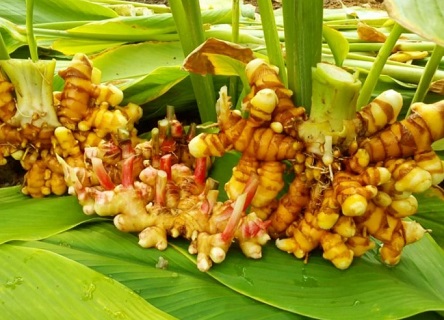Nikhil Prasad Fact checked by:Thailand Medical News Team Nov 30, 2024 4 months, 2 weeks, 2 days, 8 hours, 17 minutes ago
Medical News: Colon cancer is a leading cause of cancer-related deaths worldwide. Its incidence continues to rise, especially in middle and high-income countries, due to lifestyle factors like poor diet, lack of exercise, and smoking. This
Medical News report explores recent research into the therapeutic effects of natural bioactive compounds on colon cancer.
 Potential of Plant Compounds in Treating Colon Cancer
Potential of Plant Compounds in Treating Colon Cancer
A significant aspect of colon cancer is the abnormal activation of the PI3K/Akt/mTOR signaling pathway. This pathway is critical in regulating cell growth and metabolism, and its dysregulation is a hallmark of many cancers, including colorectal cancer (CRC). Researchers from Istanbul Health and Technology University and other Turkish institutions are delving into how plant-derived compounds like polyphenols, terpenoids, and alkaloids can inhibit this pathway, providing a foundation for innovative treatment strategies.
The Role of Natural Bioactive Compounds
Bioactive compounds are naturally occurring chemicals in plants that offer health benefits beyond basic nutrition. Examples include polyphenols, terpenoids, and alkaloids, each possessing unique properties that make them promising candidates for cancer therapy.
Polyphenols, such as curcumin (found in turmeric), resveratrol (in red grapes), and quercetin (present in onions), are particularly notable. Curcumin, for instance, reduces tumor growth by inhibiting key components of the PI3K/Akt/mTOR pathway. Resveratrol induces autophagy - a process that helps remove damaged cells - by modulating the same pathway. Quercetin not only prevents cancer cell growth but also induces cell death in tumors.
How These Compounds Work
Polyphenols inhibit cancer progression through multiple mechanisms. They:
-Suppress cell proliferation
-Induce apoptosis (programmed cell death)
-Prevent cancer cell migration and invasion
-Enhance the effectiveness of existing cancer treatments
Terpenoids, found in essential oils, and alkaloids, present in herbs, exhibit similar anti-cancer properties. They regulate cell growth and death by targeting the mTOR signaling pathway, a critical regulator of cell metabolism and survival.
Challenges in Application
Despite their promise, bioactive compounds face challenges, including low bioavailability and rapid metabolism in the body. To address this, scientists are exploring innovative delivery methods, such as nanoparticles and liposomes, to enhance the stability and absorption of these compounds.
Key Findings from the Study
The study highlights:
-Curcumin: Inhibits tumor growth by blocking mTOR activation. It also enhances the effectiveness of chemotherapy by targeting drug-resistant cancer cells.
&
lt;strong>-Resveratrol: Reduces inflammation and inhibits cancer cell proliferation. Low doses have been shown to be more effective than high doses in some cases.
-Terpenoids and Alkaloids: Compounds like artemisinin (derived from Artemisia annua) and piperine (from black pepper) show promise in reducing cancer cell viability and promoting apoptosis.
Looking Ahead
Researchers emphasize the need for further clinical studies to confirm the effectiveness of these compounds in humans. Future work aims to develop combination therapies that pair these natural compounds with conventional treatments, minimizing side effects and enhancing efficacy.
Conclusion
The findings from this research underscore the potential of natural compounds in combating colon cancer. By targeting the PI3K/Akt/mTOR pathway, these bioactive compounds could pave the way for safer and more effective treatments. As scientists continue to explore these promising molecules, there is hope for improved outcomes in cancer therapy.
The study findings were published in the peer-reviewed journal: Food Science and Nutrition.
https://onlinelibrary.wiley.com/doi/full/10.1002/fsn3.4534
For the latest on Herbs and Phytochemicals, keep on logging to Thailand
Medical News.
Read Also:
https://www.thailandmedical.news/news/canadian-study-finds-that-ursolic-acid-could-be-used-as-an-adjuvant-to-combat-colorectal-cancer
https://www.thailandmedical.news/news/herbs-and-phytochemicals-bamboo-leaf-extract-and-colon-cancer
https://www.thailandmedical.news/articles/herbs-and-phytochemicals
